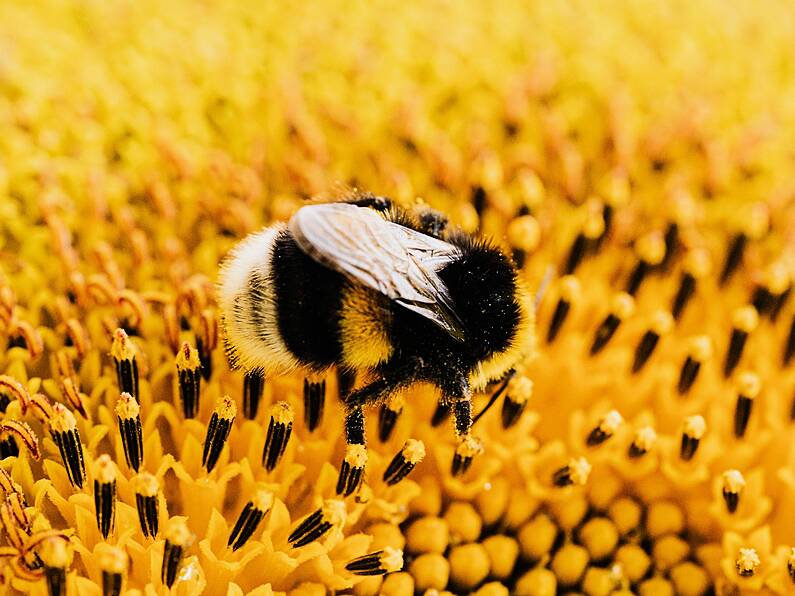In the latest episode of Ours To Protect, Orla meets with the world's only dedicated native wild bee sanctuary on the planet based on the Wicklow/Wexford border. We find out why bees are under threat and why it's so important for our biodiversity to look after insect wildlife.
Why are bees essential to people and planet?
Bees are pollinators. Pollinators allow many plants, including many food crops, to reproduce. Indeed, the food that we eat, such as fruits and vegetables, directly relies on pollinators. According to the United Nations, a world without pollinators would equal a world without food diversity – no blueberries, coffee, chocolate, cucumbers and so much more. They also serve as sentinels for emergent environmental risks, signaling the health of local ecosystems.
Pollinators not only help ensure the abundance of fruits, nuts, and seeds, but also their variety and quality, which is crucial for human nutrition. Beyond food, pollinators also contribute directly to medicines, biofuels, fibers like cotton and linen, and construction materials.
The vast majority of flowering plant species only produce seeds if animal pollinators move pollen from the anthers to the stigmas of their flowers. Without this service, many interconnected species and processes functioning within the ecosystem would collapse.
Pollination is therefore a keystone process, in both human managed and natural terrestrial ecosystems. It is critical for food production and human livelihoods and directly links wild ecosystems with agricultural production systems.
Local Bee Sanctuary
There has been a significant rise in the awareness of the importance of bees and pollinators for earth's biodiversity in recent years. Locally in Ireland, there is just one Bee Sanctuary - and it's actually the only one in the world!
The Bee Sanctuary of Ireland is situated on the Wicklow/Wexford border. It is 55 acres of bee friendly habitat with no hives and no honey. It is also the only certified vegan organic land in Ireland.
Did you know?
- Here in Ireland we have 99 species of bee.
- 21 of which are Bumblebees – the big fluffy ones!
- 77 are Solitary Bees – the small cool ones.
- Only 1 of which is the Honey Bee – the ones that mostly live in hives.
- 1 in 3 of our native wild bees are threatened with extinction right now.
Here are some actions you can take to help preserve bees and other pollinators:
- Plant nectar-bearing flowers such as marigolds or sunflowers for decorative purposes on balconies, terraces, and gardens
- Buy honey and other hive products from your nearest local beekeeper
- Raise awareness among children and adolescents on the importance of bees and express your support for beekeepers
- Set up a pollinator farm on your balcony, terrace, or garden
- Preserve old meadows, which feature a more diverse array of flowers, and sow nectar-bearing plants
- Cut grass on meadows only after the nectar-bearing plants have finished blooming
- Use pesticides that do not harm bees, and spray them in windless weather, either early in the morning or late at night, when bees withdraw from blossoms
To find out more visit:
www.thebeesanctuaryofireland.com
***
To listen back to our latest episode, click here.
To find out Your Carbon Footprint, visit footprintcalculator.org.
We'd also like to here your say on Climate Action by taking part in our survey.
Ours to Protect is funded by Coimisiún na Meán with the Television Licence Fee.
This project is a partnership between Beat 102 103 and the Independent Broadcasters of Ireland.
Check out Ours To Protect for more information.






